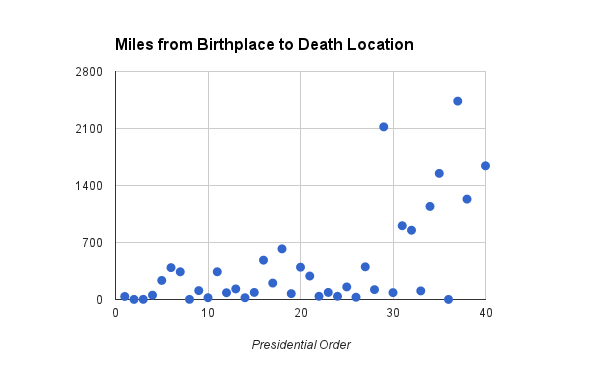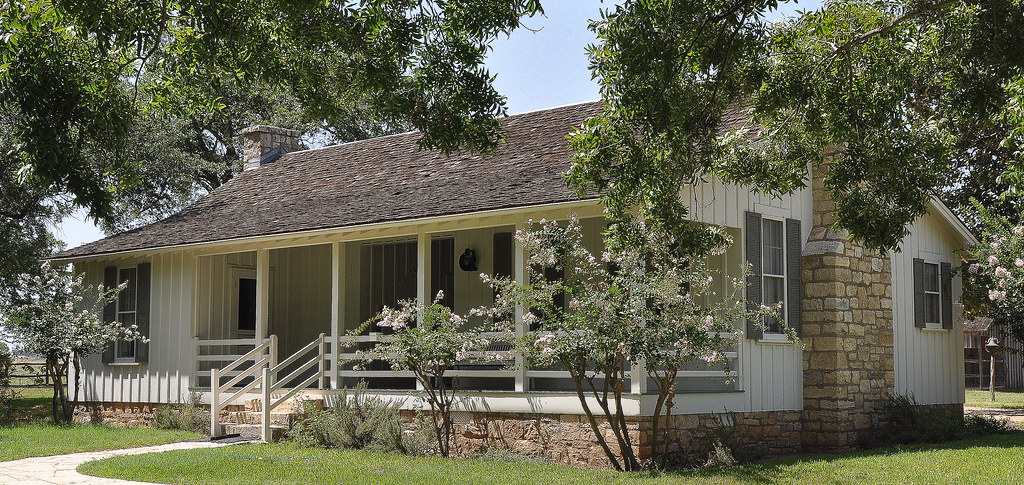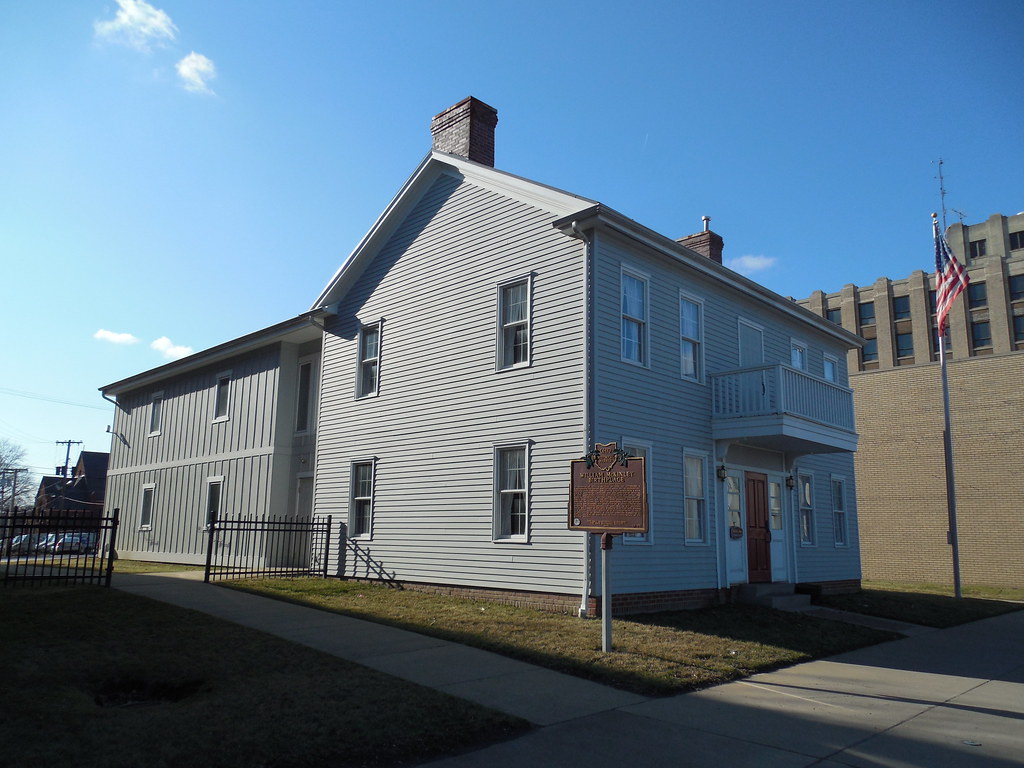Twelve Mile Circle talked about birthplaces and death locations of the Presidents of the United States. Now let’s finish this off with a comparison of distances between those two points. This involved a rather simple process of dropping the lat/long coordinates for each president into a great circle distance calculator and recording the results. Then I plotted the distances between birth and death onto a chart.

Don’t get too hung up on the lack of presidential names. Readers can always cross reference the numbers to each administration on the shared spreadsheet if curious. Also, don’t be concerned that it’s not scaled to time, either. Administrations lasted from a single month (William Henry Harrison) to just north of twelve years (Franklin Roosevelt). The more important point was to confirm that distances between birthplaces and death locations increased quite remarkably for latter administrations. This wasn’t entirely unexpected as it tracked nicely with growth and settlement patterns in the United States.
Shortest

Four presidents came to this earth and shuffled off this mortal coil at spots less than two miles (3.2 kilometres) apart. It didn’t surprise me to see this happen for some of the earliest presidents. Travel was more problematic and the landed gentry tended to stick close to their ancestral estates for multiple generations. John Adams, Thomas Jefferson and Martin Van Buren all passed away within extreme proximity to their birthplaces.
The shortest distance, less than a single mile, caught me off-guard completely. Lyndon Johnson? He didn’t serve until the middle of the 20th Century, and died in 1973. By no means did it seem logical for Johnson to be lumped into the same category as presidents born during the colonial era. And yet, not only was he there, he led the pack.
Johnson was an anomaly of course and a throwback to an earlier time. Paraphrasing from the Handbook of Texas, Lyndon Johnson’s grandfather, Samuel Ealy Johnson Sr., built a home near Stonewall, Texas in the 1880’s. Lyndon’s father, Samuel Ealy Johnson Jr., occupied the home in 1907 and Lyndon was born there in 1908. Later, a relative of the Johnson family purchased the adjacent ranch. Finally, Lyndon purchased that adjacent ranch in 1951.
Johnson united the properties. Then, as the National Park Service explained,
“Lyndon Johnson took great pride in his heritage and his roots here in the Hill Country of Texas. In order to share that heritage with interested visitors, President Johnson hired architect J. Roy White of Austin, Texas in 1964 to reconstruct the birthplace home. President Johnson and Roy White relied on old photographs of the original birthplace house as well as family members’ memories to guide the project.”
Thus, Johnson consciously and explicitly chose to move near his extended family and then later in life he focused on preserving his family legacy.
Median

I used median rather than average because outliers threw the average way off. The median distance from birthplace to death location equated to about 130 miles (210 km), while the average came in closer to 430 miles (690 km). Three presidents scored very close to the median; Woodrow Wilson, Millard Fillmore, and William McKinley.
Longest
Ronald Reagan Estate; Bel Air, California
Then there were presidents who found themselves a long way from their birthplaces — more than 1,500 miles (2,400 km) — when they passed away, some unexpectedly and some at a ripe old age. John Kennedy and Warren Harding both died in office. Kennedy and Nixon died in hospitals.
The vast majority of the 12MC audience is already familiar with the Kennedy story so I won’t dwell on it other than to mention that I visited the Grassy Knoll in 2008. Warren Harding died in the Presidential Suite of the Palace Hotel in San Francisco, probably from a stroke or congestive heart failure. His wife’s refusal to allow an autopsy led to conspiracy theories that continued to persist even through the present.
I’ll use Ronald Reagan’s estate to illustrate this section since he was the only member of the 1,500 mile club who died at home.
The president who died farthest from his birthplace was actually Richard Nixon. He was born in Yorba Linda, California and died in New York City, a great circle distance of 2,436 miles.

Leave a Reply